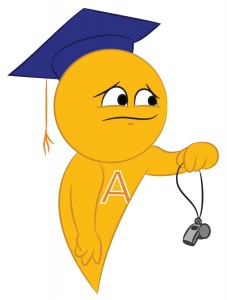Protect Yourself From College Coaching Changes

College coaches are a huge part of the recruiting process. They spend time, sometimes years, communicating with athletes and enticing them to play for their school. Athletes sometimes choose one school over another because of the relationship they have with a coach; an NCAA survey found that 41 percent of NCAA Division I football players would not want to attend the school they committed to if there was a coaching change. That is a high percentage, considering the other factors that should go into a recruit’s college decision.
Base Your College Decision on More than the Coach
Think about what academic services and opportunities a college has. Most high school athletes dream of one day turning pro, but unfortunately the odds that will happen to you are extremely low. Take a deeper look at the academics a school can offer you. Do they have majors that interest you? Do they have good support services? What resources does the library provide? You should research and visit the campus to see if it is what you are looking for. A coach may change their job, but the athletic and academic facilities are not going to change. If you choose a school for more than just a coach, a coaching change won’t have as big of an impact on your collegiate experience.
How Often Do Coaches Change Jobs?
College football is notorious for coaching changes. Position coaches want to become coordinators, and coordinators want to become head coaches. There is also an intense pressure for coaches to keep their jobs. Football is the only surefire revenue sport for most colleges, leading to increased pressure for football coaches to get their teams to perform.
However, coaching changes are not limited to college football. Twenty percent of NCAA Division I volleyball coaches change jobs every year. That number is even higher for Division II and III. After four years, over 60 percent of coaches have left their current position. That means there is only a 40 percent chance the coach recruiting you as a high school sophomore will still be there after your freshman year in college.
What Are Your Choices After a Coach Leaves?
Coaches can pick up and leave at a moment’s notice, but the process is much more difficult for a student athlete. If you have already signed an NLI and committed to a school, then you must get a signed release from your school’s athletic department just to be allowed to speak to another coach.
If you have not yet signed an NLI, you can still talk to other coaches. Start contacting the coaches that were previously recruiting you. This is why we recommend looking at a wide range of schools when you are starting out. Exploring as many options as possible can ultimately help you out in the long run.
If you have questions on coaching changes and what to do, leave us a comment in the comments section below or connect with us on Facebook, Google+, or Twitter!
Find opportunities for athletic scholarships and get connected to college coaches.
